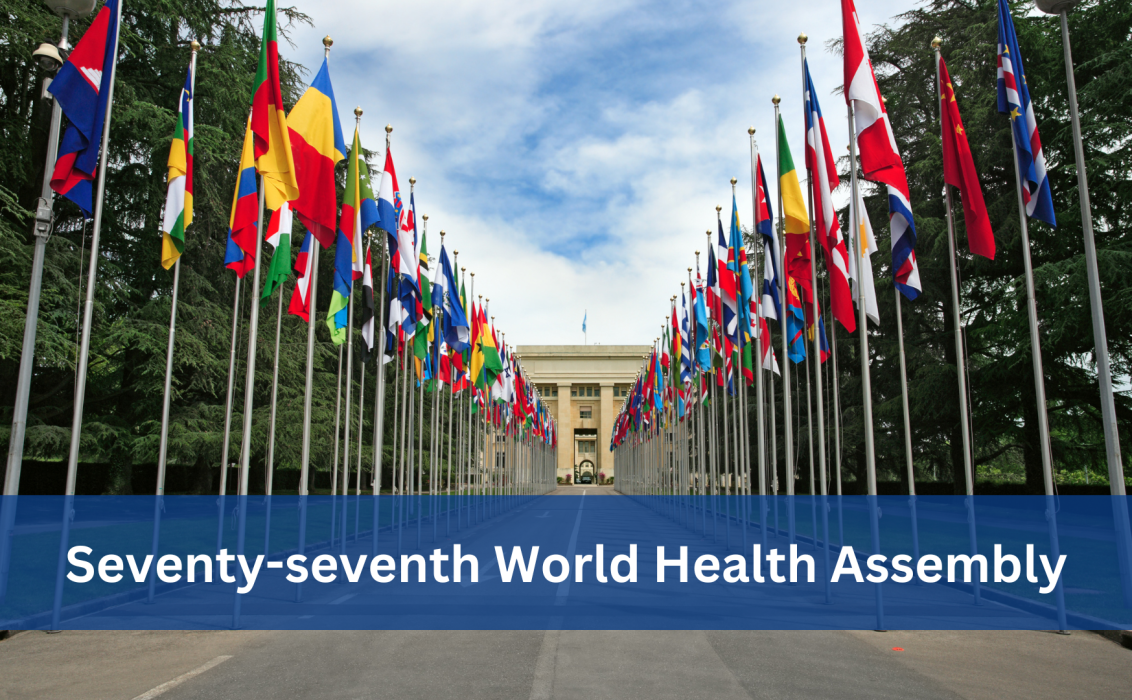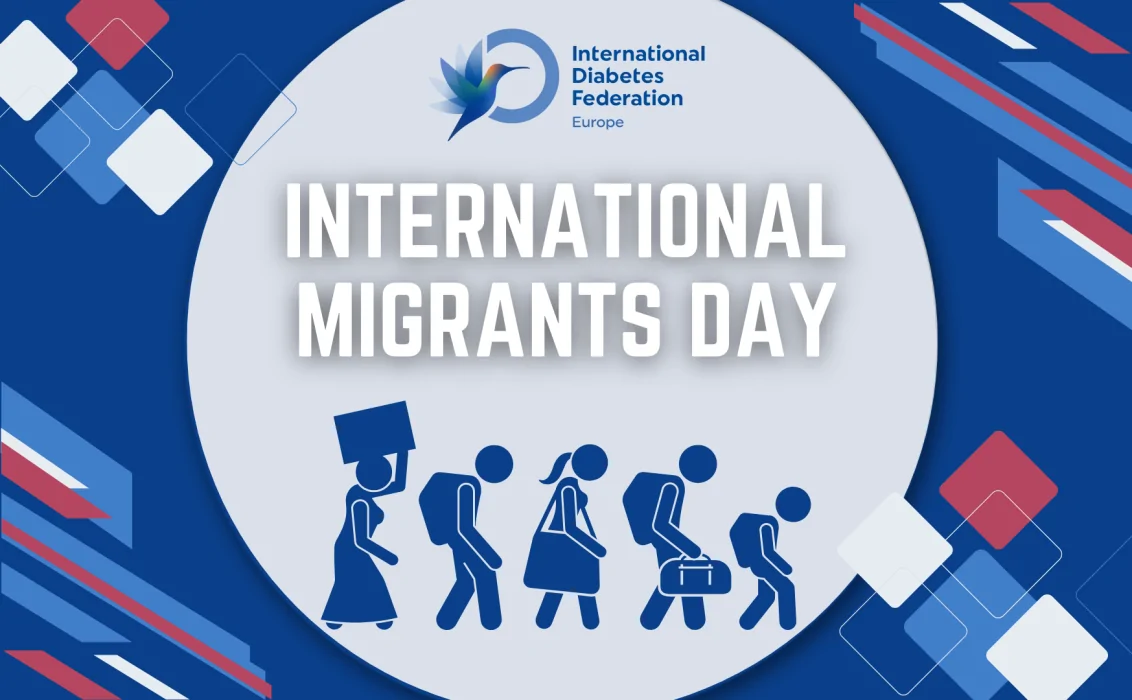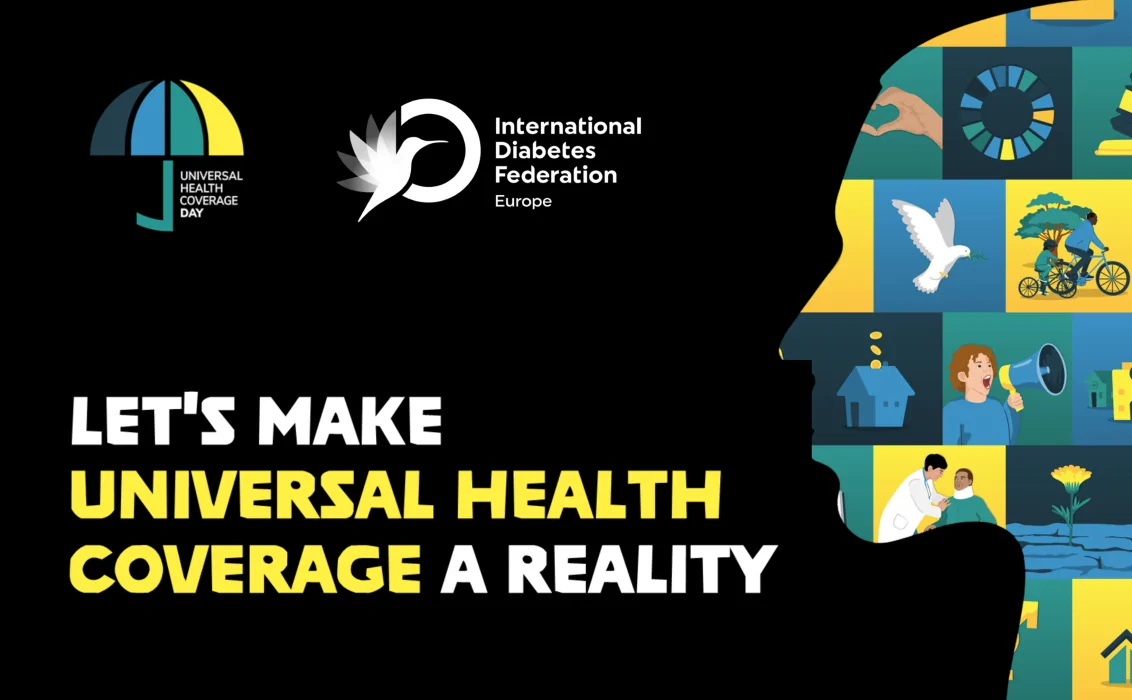The 77th World Health Assembly (WHA) was held on May 27-June 1, 2024 in Geneva, Switzerland. The theme of this year’s WHA was ‘All for Health, Health for All’. The WHA gathered Member State (MS) representatives, health experts and civil society organisations to discuss and set WHO policies, programmes and budgets.
Health system preparedness, response and resilience dominated this year’s WHA
In the context of the permacrisis, marked by the COVID-19 pandemic, climate change, and conflicts, it is unsurprising that this year’s WHA focused heavily on preparedness and response mechanisms for future emergencies. One of the most highly anticipated moments of the week was the presentation and negotiations of the Pandemic Prevention, Preparedness and Response Accord along with the amendments to the International Health Regulations, initiatives which started in response to the COVID-19 pandemic and in recognition of the need to bolster global preparedness and response mechanisms to health emergencies.
Another key outcome was the approval of the WHO’s Fourteenth General Programme of Work (GPW 14), 2025-2028. The GPW 14 provides insight into WHO’s vision and key priority areas and is a high-level roadmap that will guide its work during the coming years. With an overarching vision to promote, provide and protect the health and well-being of all people, everywhere, the GPW 14 has six strategic objectives:
- Respond to climate change, an escalating health threat in the 21st century
- Address health determinants and the root causes of ill health in key policies across sectors
- Advance the primary healthcare approach and essential health system capacities for universal health coverage
- Improve health service coverage and financial protection to address inequity and gender inequalities
- Prevent, mitigate and prepare for risks to health from all hazards
- Rapidly detect and sustain an effective response to all health emergencies
A sub-objective of strategic objective four is improved equity in access to quality services for people living with non-communicable diseases (NCDs), mental health conditions and communicable diseases, while addressing antimicrobial resistance.
An outcome indicator used for this objective is ‘mortality rate attributed to cardiovascular disease, cancer, diabetes or chronic respiratory disease’, which was also used as part of GPW 13. New to the GPW 14 is the outcome indicator of ‘prevalence of controlled diabetes in adults aged 30-79 years’.
IDF Europe welcomes the addition of this indicator, which acknowledges not only the importance of tracking diabetes mortality but also the necessity of taking decisive and comprehensive action to better manage diabetes in order to lower the risk of diabetes-related complications and improve the quality of life of people living with diabetes (PwD).
Sustainable funding and financing of WHO’s work was another prominent topic of discussion
The WHO’s third investment case ‘All for Health, Health for All’ was produced alongside the GPW 14, ahead of the launch of the first-ever WHO Investment Round, which aims to secure the financing of the GPW 14. The investment case emphasises the impact of a fully funded WHO, highlighting that through investment in the WHO and GPW 14, at least 40 million lives could be saved over the next four years, with 6.5 million lives saved from NCDs alone. Its launch at WHA marks the beginning of a series of upcoming engagements and events where MS and other potential donors will be invited to contribute to financing the work of WHO.
IDF Europe also welcomes the resolution on social participation for universal health coverage, health and well-being
On May 29, MS endorsed a resolution to enhance social participation in health decision-making processes. In recognition of the importance of social participation for achieving universal health coverage, this resolution aims to empower communities and civil society by ensuring their participation at all policy levels and thereby giving them a stronger voice in influencing the decisions that affect their health and well-being. As outlined in the resolution, IDF Europe echoes the call on MS to implement, strengthen and sustain regular and meaningful social participation in health decision-making with diabetes civil society organisations and PwD.
Insights from WHA side-events on diabetes and NCDs
On May 28, IDF Europe Regional Manager, Elisabeth Dupont, attended the International Diabetes Federation side event which focused on diabetes and wellbeing. During the event, speakers representing PwD, national and international institutions, healthcare professionals (HCPs) and philanthropic foundations explored challenges to physical and mental wellbeing for PwD and role in promoting better quality of life for those living with the condition. Speakers emphasised the importance of effective partnerships with the meaningful engagement of PwD as well as the need for governments to uphold their commitments towards achieving the Global Diabetes Targets by 2030.
Other side events highlighted the need for sustainable financing for NCDs and mental health, the impact of the rising burden of NCDs on the health workforce and what needs to be done to empower the workforce to tackle this escalating problem, as well as solutions for integrated care approaches to reduce diabetes and tuberculosis mortality.
77th WHA takeaways
The approval of the WHO’s GPW 14 at the 77th WHA represents a significant step forward for the health and well-being of all with strategic objectives and indicators that can promote, provide and protect citizens’ health and well-being, everywhere, whether it be in the context of health emergencies or advancing progress towards universal health coverage. A crucial addition to the GPW 14 is the new outcome indicator on the prevalence of controlled diabetes in adults which could be particularly impactful for PwD, as it brings into sharp relief the need for better management to improve quality of life. The resolution on enhancing social participation in health decision-making also ensures that PwD and other diabetes stakeholders have a stronger voice in shaping health policies, an important process in ensuring effective and needs-based policies.



